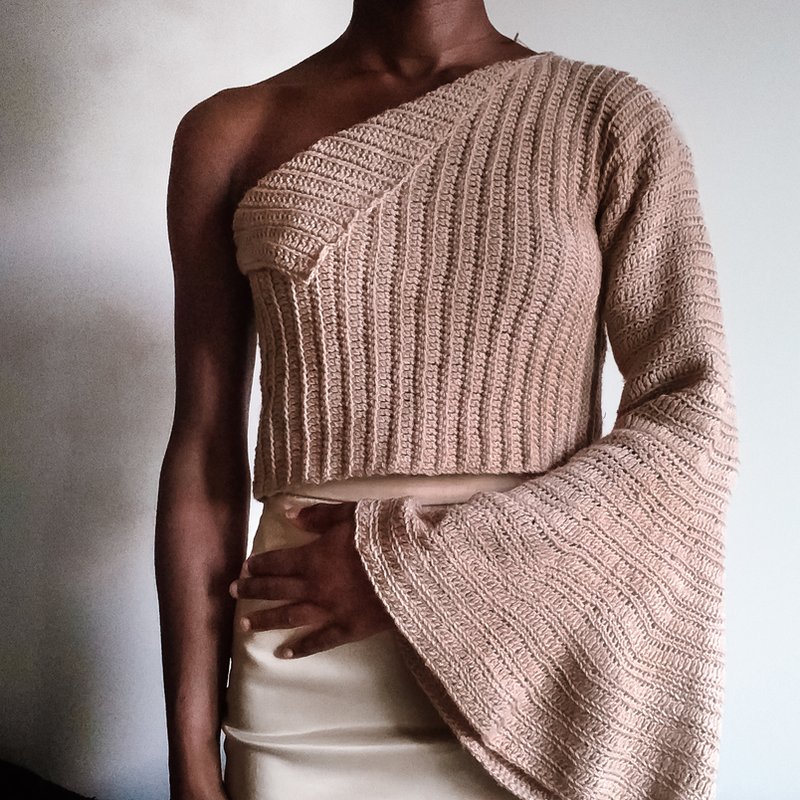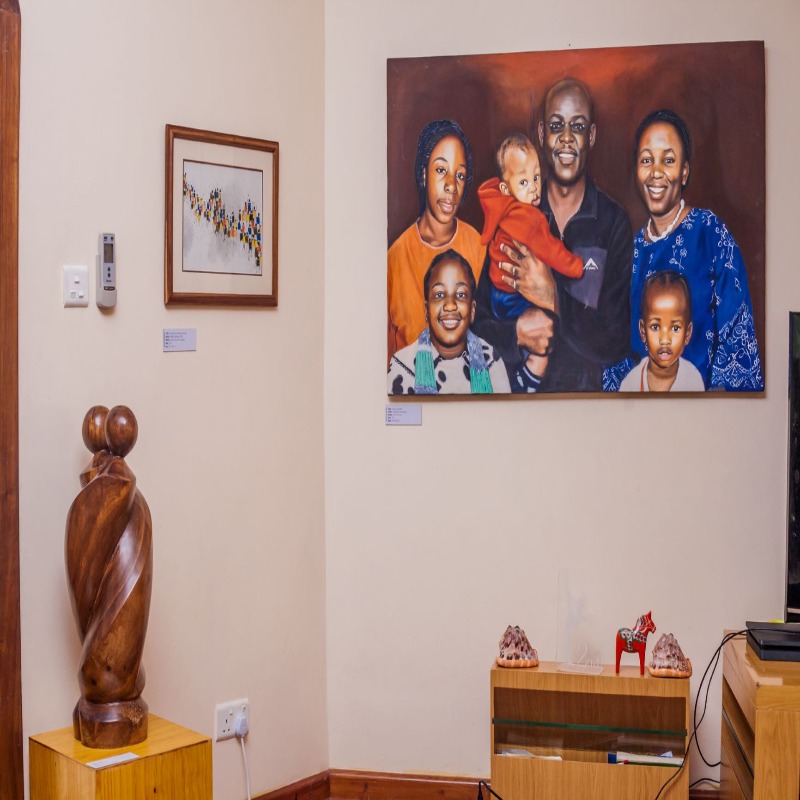It is always interesting to see a brand through the eyes of its founders and
I was keen on hearing what three words Lukundo Musonda and Chioni Mambwe would use to describe their up and coming fashion brand, Utuntu.
Without hesitation, they say innovation, individuality and incivility. “We chose these three words because when we make our pieces, everybody’s body type is considered. We refer to them as pieces, not clothes, because to us they are a work of art. We never want to say we can’t make an XS or XL piece…We created an inclusive space where people do not have to feel like something is wrong with their bodies just because they do not look like the next person.”
The duo wants women to feel amazing in their pieces and realize that their power lies in their individuality. “Our grandmothers taught us how to crochet, and it’s something we’ve been doing since middle school, when we would get comments from our peers like ‘crochet is for old people’ or
‘you’re an old soul, that’s not something young people do.’ But is a skill that has been passed down from generation to generation, and we are elevating an old skill by using it to make modern fashion.”
Utuntu is a Bemba word meaning things. The company designs and handmakes contemporary crochet pieces from 100 percent locally sourced materials. Lukundo and Chioni, met as university roommates and their love for crochet sealed their friendship. They went from watching multiple YouTube videos on mastering the art of crochet to starting a business together.
I admit to Lukundo and Chioni that I fell down a rabbit hole once I had a look at the Utuntu Instagram page. Judging from the short films on the page, storytelling seems to be one of the pillars of the brand. Both ladies were excited when I told them my favourite of these films is Balance.
“We are so glad that you were able to see this because we want our brand to be associated with stories that haven’t been told yet, which people find relatable and empowering.
Balance encourages women to choose their own paths and not allow themselves to be limited by the assumptions of those around them. It tells them they can be more than one thing and there is not one single way to be feminine. As the ladies put it, “Balance is a story of duality.”
The more we talk the more obvious it is that so much effort goes into every aspect of the Utuntu brand, and I was curious about how ideas are executed. I asked if they make the pieces themselves and how they ensure quality control. Chioni replied “Yes, we crochet each and every piece ourselves. Our collections are made up of nine unique designs, and we split
them among ourselves. She continues, “We maintain the quality by testing each piece. We wear them and try them out for some time, then fix any defects that we notice. For a second, non-biased opinion, we give our friends some of the pieces to try out, and they are usually very helpful with their feedback. This has taught us to listen to our clients. We just released our second collection and we are so excited to see what our clients think of it.”
Conflict is inevitable in any relationship. So how do Lukundo and Chioni resolve conflicts? “Living together at university was a great foundation for our relationship as business partners. You really get to know a person once you start living with them, their good and bad habits, what makes them angry and how to communicate with them. That has carried over even in our business and it is serving us well in the conflict department.”
We segue into the topic of mental health and both ladies share how they stay sane all while balancing work and studies, among other things. Lukundo meditates but these days is more focused on practicing gratitude as she finds it harder to carve out time for meditation.
Chioni shares, “My outlet is crocheting, which is funny because when I start doing it as work it is no longer relaxing because of all the stress that comes with it. We encourage each other to have safe spaces where we can talk about our struggles and escape.
Lukundo and Chioni are proud of their work and what they have achieved so far. They look forward to running their business for many years to come and they plan to make a positive impact. The duo shares that just as their grandmothers taught them to crochet, they too would love to pass on the skill. They plan to teach women from vulnerable backgrounds how to crochet, in hopes that they can also start their own businesses.








